Hotel description:
The Viennese three-star Boutiquehotel Stadthalle Wien is the world’s first zero-energy balance hotel in urban areas.
Boutiquehotel Stadthalle is a wonderful place where you can stay in a beautiful garden setting and relax in individually designed rooms. The hotel only uses water from their own well to water the plants and flowers in the garden.
Relax in a unique atmosphere, unprecedented for a city hotel in cosmopolitan Vienna. Tucked away on a quiet street, away from the bustle of the capital city, lavender blooms on the roof and birds chirp in the garden.
The hotel has two main property situated next to one another. The parent building consists of 41 rooms on 4 floors of an 19th century Apartment-building and the new Passive house hotel which consists of 38 rooms on 5 floors; building with zero energy balance.
The entire team’s motto is: „You must be the change you want to see in the world “.
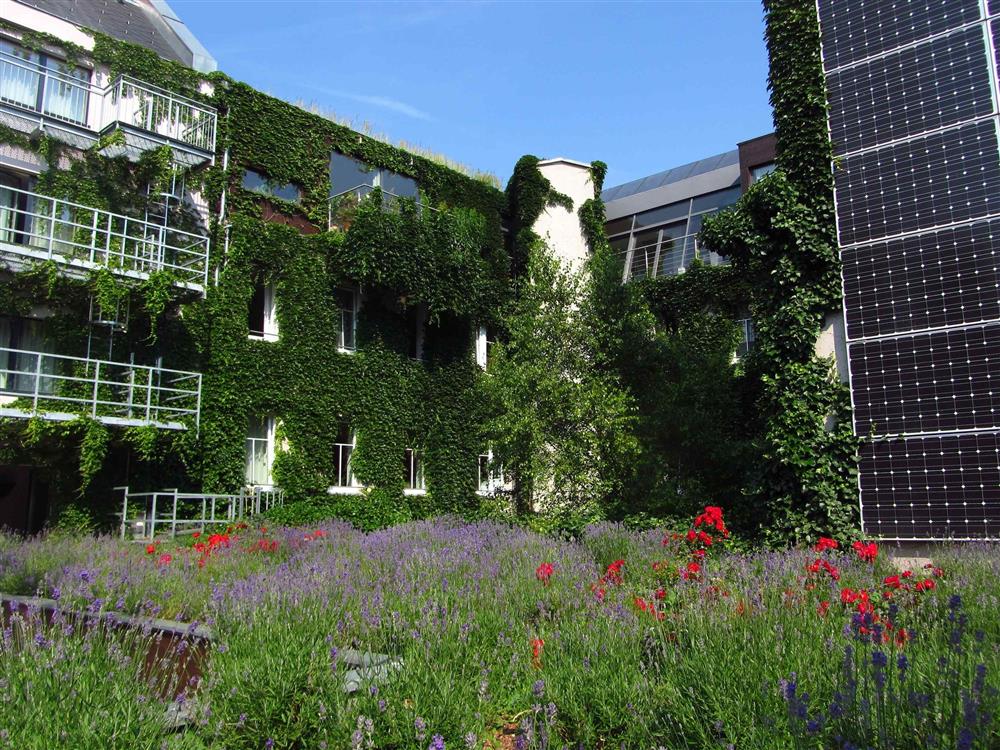
Respect for nature and its resources can be seen in all the company’s activities. For example, the hotel uses solar energy for heating and rain water for toilet flushes. Guests are also offered a 10% reduction on their room price if they travel by train or bike. If they have electric cars they can charge them for free at the hotel’s electric fuel station. Also, the substantial breakfast buffet consists, as far as possible, of organic food.
Michaela Reitterer is the sole owner and manager of the Boutiquehotel Stadthalle Wien which administers the hotel and the real estate. Before she bought her parents’ business in 2002, she ran a travel agency and worked as assistant to the chief executive officer of a catering company.
Zero-Energy Balance Hotel
In 2002, Michaela Reitterer bought the hotel ‘Zur Stadthalle’ from her parents and decided to consider ‘environmental awareness’ as the main vision of the company. Her parents were already interested in this issue and their hotel had been certified with the Austrian ‘Ecolabel’. Michaela Reitterer wanted to follow this route. Just after taking over the hotel in 2002 she had a solar energy plant installed. It is important personally for her to use natural resources and environmentally friendly and protective measures as far as possible, even if this does not immediately result in financial savings for the business.
In spite of the fact that, with the solar energy plant and the other environmentally friendly measures, the hotel was already the leading hotel with regard to the environment and sustainability in Vienna at this time, Ms. Reitterer did not feel these measures were sufficient. Consequently, in 2007 she started planning a zero-energy hotel which was to be an expansion of the initial company. At the same time, the original hotel was to be renovated to guarantee a coherent character of the whole company.
The aim of the restructuring was to increase the level of ecological sustainability the company was already embracing. Michaela Reitterer was more inspired by her personal interest in using natural resources than by the business idea.
When Ms. Reitterer started in 2007 to develop her idea for a zero-energy hotel, she soon realised that this was nationally and internationally an innovative issue. Environmental considerations were not yet very widespread in tourism or the economy in general, but there was increasing interest. Accordingly, there were hardly any experts available for her to approach.
At the end of 2008, the construction of hotel began. The new six-storey building had 38 guest rooms. It was concrete with a façade specific to a zero-energy house. The new building is a stand-alone structure, linked to the initial hotel only in the cellar and the ground floor. Plastic pipes through which water is circulated were installed in the massive ceilings and walls, enabling controlled heating and cooling. Furthermore, a photovoltaic plant was installed.
What are the main benefits of being environmentally friendly?
The new building not only expands the original hotel but also offers a zero-energy balance. The hotel heating uses water heated by a 130 m2 solar energy plant. A ground-water heating pump, three wind wheels and the more than 80 m2 of large photovoltaic plant create so much energy that not only can the energy needs of new hotel be entirely served, but energy can also be emitted to the original hotel and the ecological electric supply network. The filling of the toilets’ flushing tanks as well as the watering of the garden is done through a rain water collection system. The fresh air for the controlled air conditioning is warmed by a solar energy plant, and during the summer the building can be cooled by cold ground water which is pumped through the concrete ceiling. Thereby, the company does not have to use energy-consuming air conditioning, and energy consumption is also reduced by the use of LED and energy saving lighting reduces.
In 2012, more than two years after the restructuring, company performance (guest numbers and sales) is about 20% higher than initially expected. The new building and the renovation of the initial hotel resulted in a doubling of the hotel’s capacity which also led to an increase of the number of employees from 18 to 32.
Before the restructuring, the entrepreneur expected the changes to improve business. However, she did not expect that the results would be so positive. Business development and progress are now also closely monitored (sales, number of guests), and marketing is strategically conducted.
The restructuring was carried out according to the initial concept, but went beyond this in some fields as it was only during construction that some aspects materialised which the entrepreneur could not have foreseen. For example, it became gradually apparent that the guests expected breakfast to be organic, although this is only in a wider context related to the ecologically sustainable concept of the hotel.
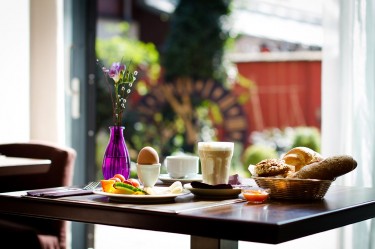
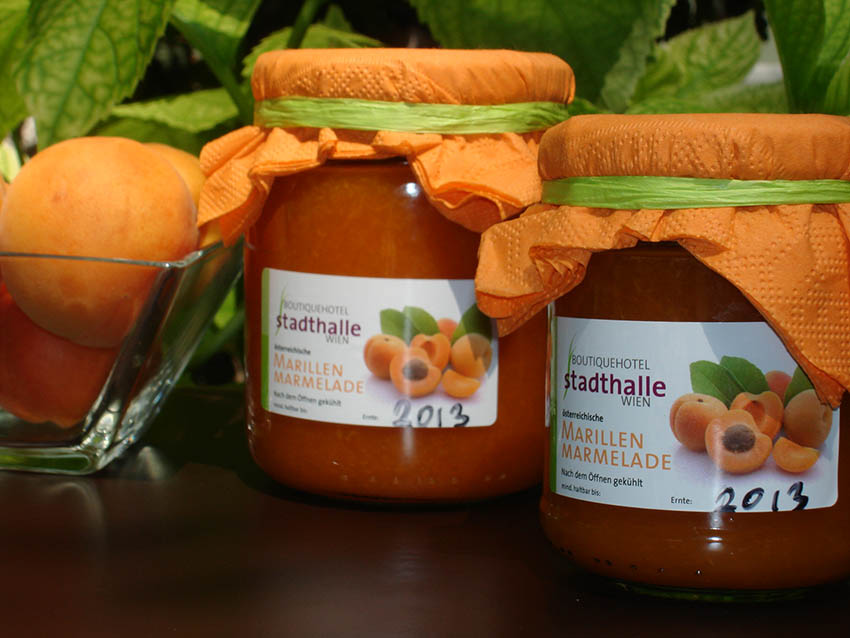
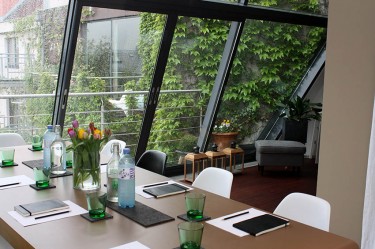
Continuous improvement
In 2014, the hotel added a new facet of sustainability. Upcycling captured their interest. Upcycling, in contrast to traditional recycling, refers to the repurposing of reusable objects. This means that everyday objects are reused for new and different purposes, reducing new production, and thereby, reducing energy and resource consumption.
In January and February of 2014, in cooperation with the University of Applied Arts, the hotel completely renovated seven guest rooms, upcycling style! Firewood became coffee tables, books became nightstands, and newspapers became footrests.
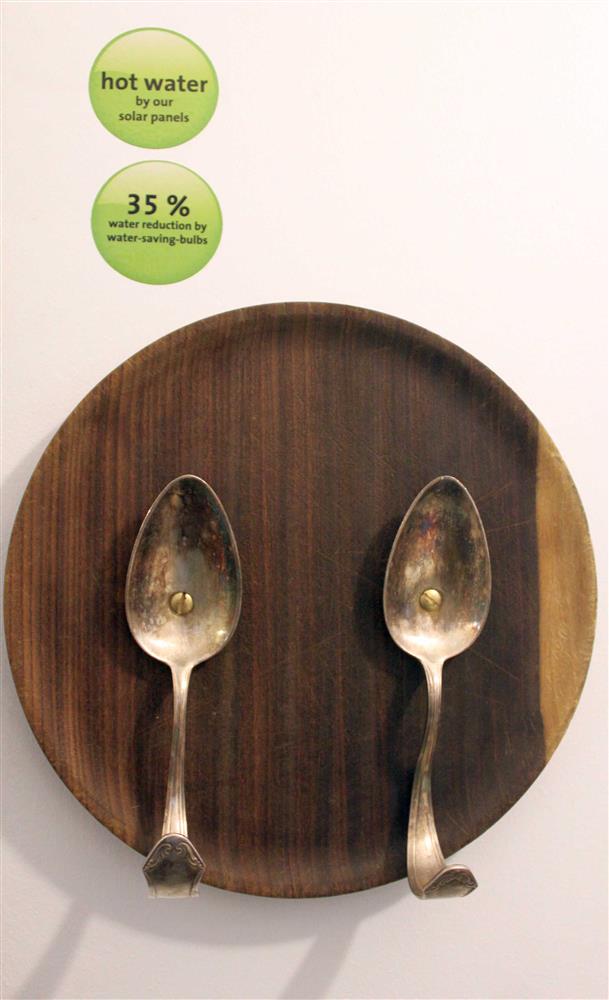
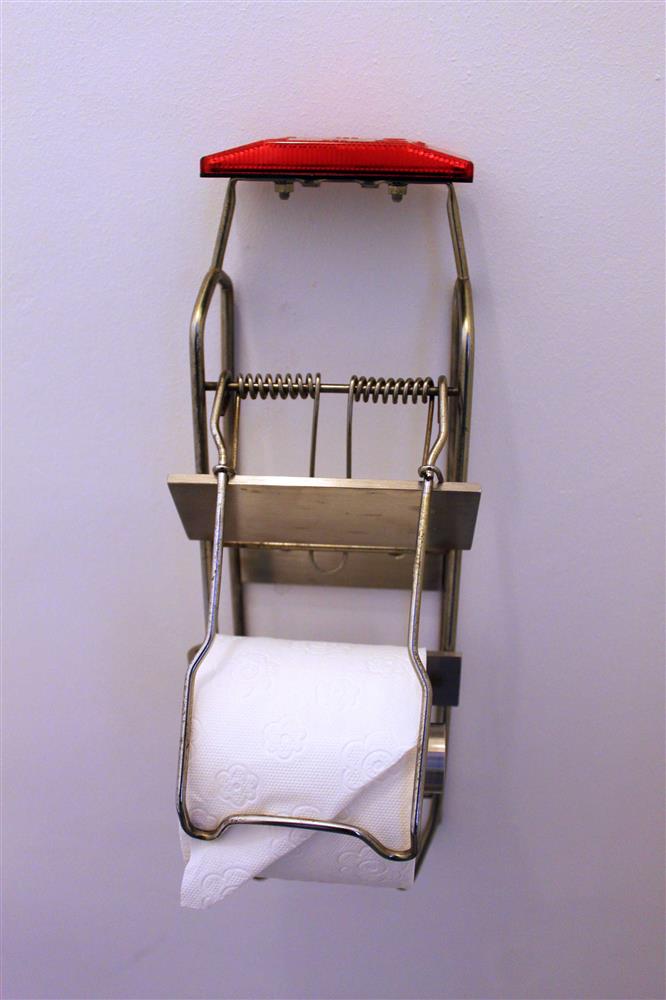
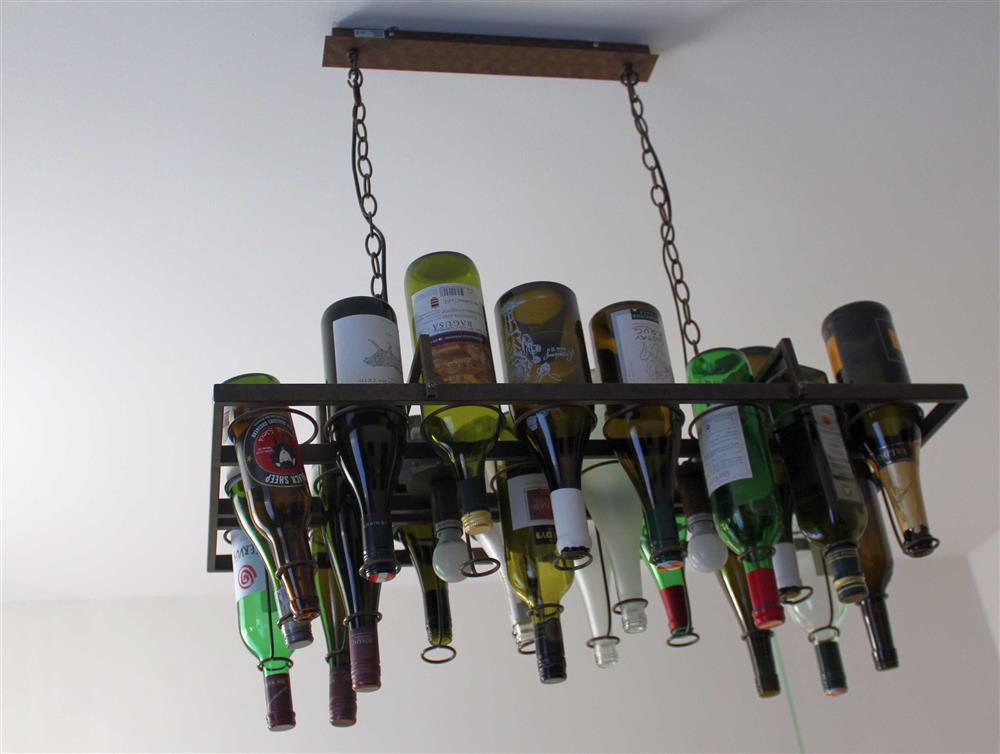
Technical details:
Concept:
GREEN LABELS AND AWARDS
The hotel has numerous awards and certificates during the years, please find below some of them:
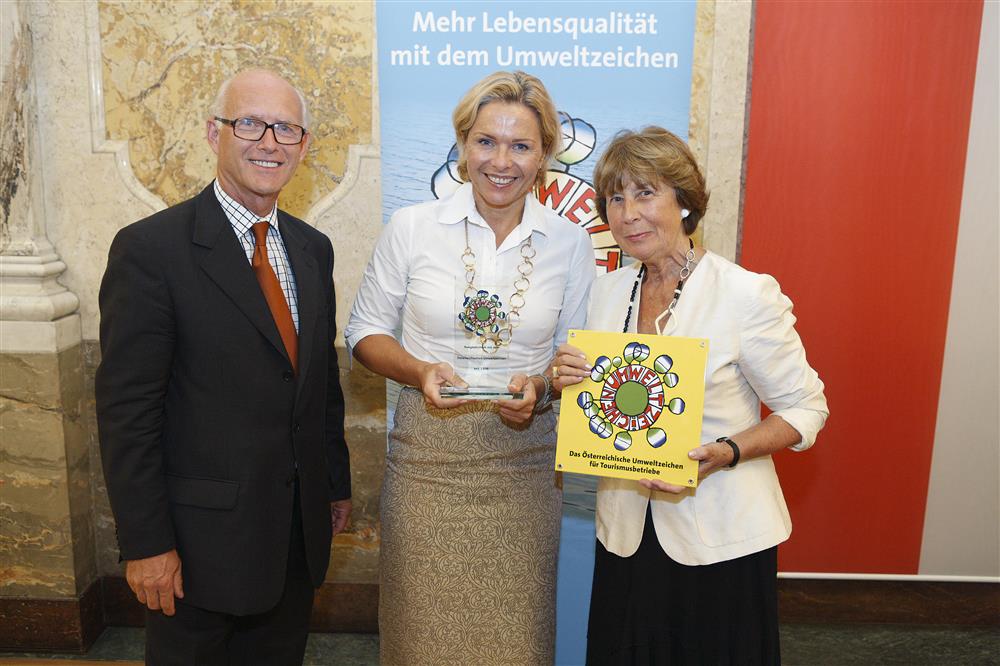
110.000 kWh / p.y (original building)
62.000 kWh/ p.y. (passive house)
Only LED lights are used in the passive house. The entire consumption of electricity in all the staircases and hallways of the passive house account for 244 Watt. If all the lights were switched on in all the 38 rooms, the consumption would make a total of 1344 Watt. The small consumption of the passive house includes the electricity used for our water heat pumps and the electricity of the technical area of the passive house. We produce electricity through our photovoltaic panels – we hope to receive soon permission by authorities of the city to install wind turbines to reach energy self-sufficiency.
76 l per guest (original building)
65l per guest ** ** incl. laundry (passive house)
Even though the laundry is located in the passive house, we consume less water than the parent building. This is due to the cold well-water we use to flush the toilet. A direct result from the concrete core activation heating and cooling process.
community heating (original building)
With solar plant and heat pumps (passive house)
The zero energy-balance is based on the costs of the entire hotels consumption. We could reach the balance if we get permission for the wind turbines. The passive house supplies the parent building with hot water and heat; we only need to buy additional electricity for the parent building.
260.000 kWh / p.y. (original building)
none (passive house)
The passive house is heated and cooled by the concrete core activation. The water heat pumps that are necessary are supplied with well-water. After the process of energy extraction, the cold water is then used to flush the toilets. The surplus of energy is delivered to the original building to heat the water. Actively controlled room ventilation and central controlled airing of the rooms instead of air condition.